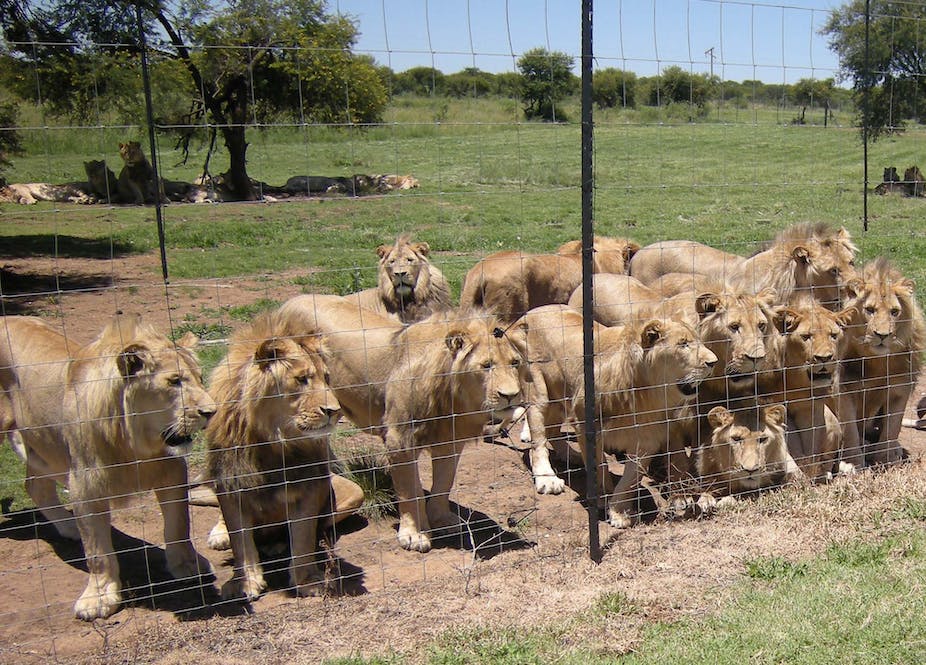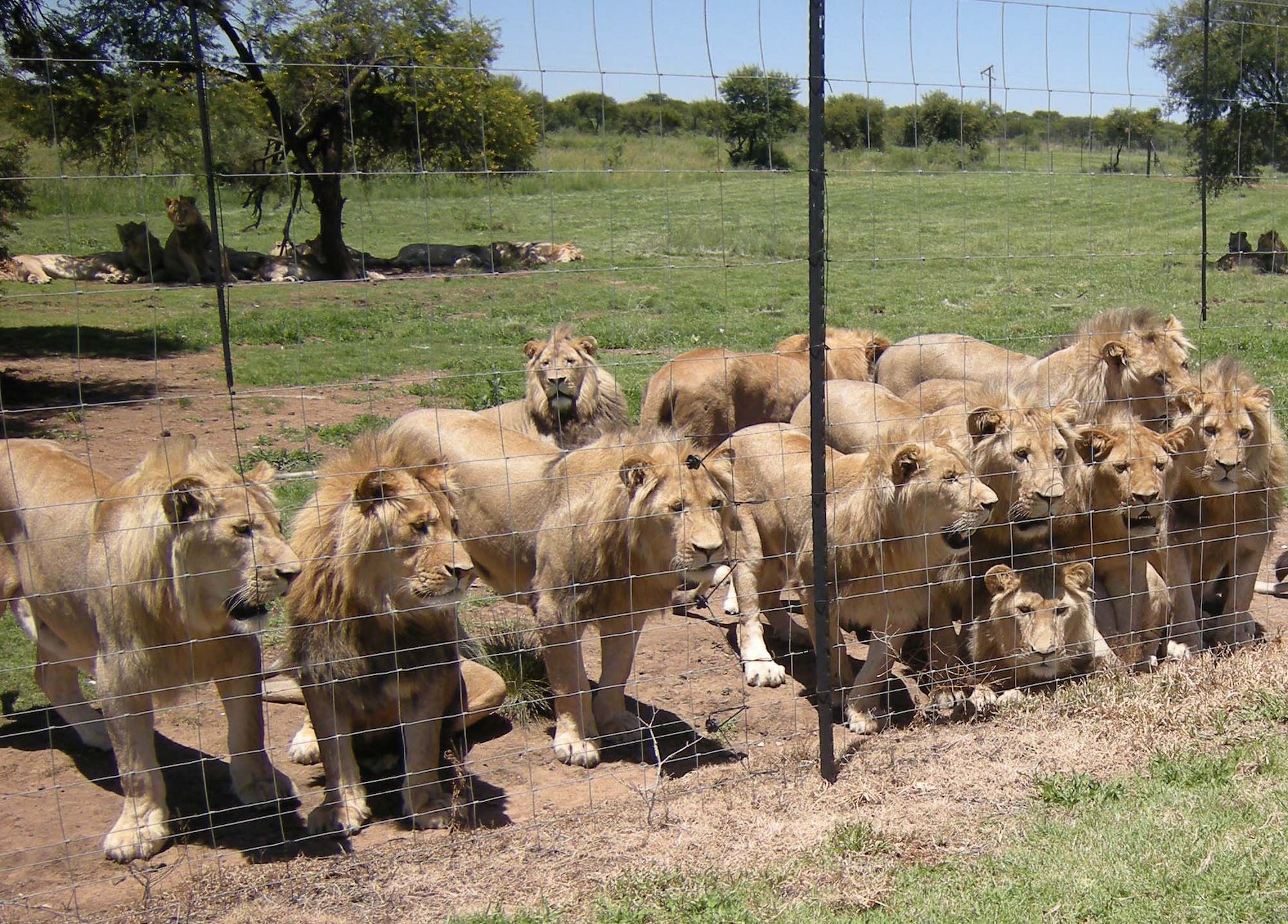“The Controversial Industry of Lion Farming in South Africa” sheds light on the ongoing issue of lion farming in South Africa, which involves the breeding and exploitation of lions for various purposes such as tourism, entertainment, and traditional medicine. Lions are intensively farmed and held in captive facilities, where they are subjected to activities like cub petting, canned trophy hunting, and the extraction of their body parts for export. Despite concerns raised by experts regarding public health risks and the conservation of wild lions, the industry continues to thrive, contributing millions to the economy. Efforts to regulate and halt the industry have faced challenges due to a lack of centralized national governance and legal ambiguities. To effectively address this contentious industry, a strategy involving a mandatory and time-bound termination of lion farming is necessary, while also ceasing breeding and canned hunting operations.
The Controversial Industry of Lion Farming in South Africa
Lions are majestic creatures that have captivated the human imagination for centuries. However, in South Africa, lions are being farmed for various purposes, sparking controversy and concern. From entertainment attractions to canned trophy hunting to traditional medicine, the lion farming industry has become a source of debate and outrage. In this article, we will explore the different aspects of lion farming in South Africa and discuss why it should be shut down.
Why are lions being farmed?
Lions have been intensively farmed for commercial purposes in South Africa since the 1990s. These wild animals are exploited as entertainment attractions for tourists, such as cub petting and “walk with lions” experiences. These activities often involve human interaction with lion cubs, allowing visitors to pet them or have their photos taken with them. While it may seem innocent on the surface, these activities can have detrimental effects on the well-being of lions, as they are subjected to stress and unnatural conditions.
Another reason for lion farming is the practice of canned trophy hunting. In this controversial activity, lions are bred and raised in captivity only to be released into an enclosed area where they have no chance of escape. Hunters pay large sums of money for the opportunity to shoot these captive lions, resulting in a guaranteed kill. This practice has been widely criticized for its lack of fairness and ethics.
Additionally, lions are farmed for their body parts, particularly their bones, which are used in traditional medicine. These lion bones are exported to Asia and used as ingredients in traditional Asian medicine, such as “wines” and tonics. This demand for lion bones has emerged as a substitute for tiger bones, which are now highly regulated due to conservation efforts. The lion farming industry has capitalized on this demand, contributing to the exploitation and endangerment of lions.
What does the lion farming industry look like?
According to official records in 2019, there were approximately 8,000 lions being held in over 350 facilities in South Africa. In contrast, the current wild lion population in the country is estimated to be around 3,500. This stark difference raises concerns about the ethical implications of lion farming and the impact it has on wild lion populations.
It is worth noting that some lion farms also breed other big cats, including tigers, cheetahs, leopards, jaguars, and hybrids. The exact number of lions and other species on these commercial “lion farms” is unknown, as the industry has never been fully audited and not all farms are officially registered. This lack of oversight and regulation raises serious questions about the industry’s transparency and compliance with the law.

Lack of Industry Auditing and Registration
A major problem with the lion farming industry in South Africa is the lack of effective regulation and oversight. Governance of the industry falls under a patchwork of legislation that is fragmented and decentralized. There is no centralized national system to regulate lion farming, resulting in confusion and noncompliance.
At a national level, the lion farming industry falls under legislation such as the National Environmental Management: Biodiversity Act, as well as regulations around threatened or protected species. However, enforcement and transparency are challenging due to the absence of a centralized system. This creates loopholes that allow for illegal activities to persist, undermining the efforts to manage and oversee the industry effectively.
Furthermore, at an international level, lion bone exports are regulated under the Convention on International Trade in Endangered Species of Wild Fauna and Flora (CITES). However, the industry has faced scrutiny, leading to a “zero quota” on lion bone exports since 2019. Despite these measures, the captive breeding and exploitation of lions for commercial purposes continue to prevail, highlighting the need for more comprehensive regulation and enforcement.
Conclusion
The lion farming industry in South Africa is a controversial and concerning practice that exploits and endangers these magnificent creatures. From entertainment attractions to canned trophy hunting to the use of lion bones in traditional medicine, lions are being subjected to unnatural conditions and harm for human gain.
The industry’s lack of auditing, registration, and effective regulation contributes to its continued existence and perpetuates the exploitation of lions. It is crucial for the South African government to take immediate and decisive action to shut down the lion farming industry, putting an end to the suffering and exploitation of these iconic animals.
By recognizing the ethical and environmental implications of lion farming, we can work towards a future where these incredible creatures are protected and revered in their natural habitats, rather than being bred and held captive for profit and entertainment. Together, we can strive towards a more compassionate world that values the welfare and conservation of all living beings.

